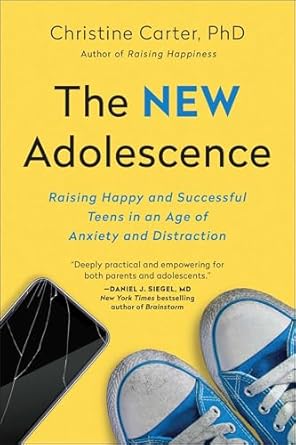Adolescence, a period marked by profound physical, emotional, and social transformations, presents a unique set of challenges for both teenagers and their parents. Often described as an “emotional rollercoaster,” this phase requires a nuanced understanding and a supportive approach to navigate successfully. By recognizing the inherent difficulties of this life stage and implementing effective strategies, parents can foster a harmonious relationship and guide their teens towards healthy development.
Understanding the Multifaceted Challenges of Adolescence
Adolescence is not a monolithic experience; it is a complex interplay of various factors that contribute to its inherent turbulence.
- Physiological and Hormonal Shifts: Puberty initiates a cascade of hormonal changes, leading to rapid physical development and fluctuating emotions. These biological alterations can trigger mood swings, anxiety, and a sense of being overwhelmed. According to research from the National Institutes of Health (NIH), the surge in hormones like testosterone and estrogen significantly impacts brain development, particularly in areas related to emotional regulation and decision-making. (Source: NIH – [Search for relevant NIH publications on adolescent brain development and hormones])
- The Quest for Identity Formation: Adolescents are engaged in a crucial process of self-discovery, seeking to establish a unique identity separate from their parents. This involves exploring new interests, values, and social roles, often leading to experimentation and risk-taking behaviors. Erik Erikson’s theory of psychosocial development highlights this stage as a critical period for identity versus role confusion. (Source: Erikson, E. H. (1968). Identity: Youth and crisis. WW Norton & Company.)
- The Influence of Peer Dynamics and Social Media: Peer pressure, amplified by the omnipresence of social media, exerts a significant influence on adolescents’ behaviors and choices. The desire for social acceptance can lead to conformity, risky behaviors, and mental health challenges. Studies have shown correlations between excessive social media use and increased rates of depression and anxiety among adolescents. (Source: Royal Society for Public Health – [Search for relevant reports on social media and youth mental health])
The Pivotal Role of Parents: Cultivating a Supportive Environment
Parents serve as crucial anchors during this tumultuous period. Fostering a healthy parent-child relationship requires a proactive and empathetic approach.
- Establishing Open and Honest Communication: Create a safe space where your teen feels comfortable expressing their thoughts and feelings without fear of judgment. Active listening, empathy, and clear, consistent communication are essential. Establishing clear family rules, and having family meetings are very useful.
- Providing Consistent Emotional Support: Validate your teen’s emotions, even if you don’t fully understand them. Offer encouragement and celebrate their achievements, fostering a sense of self-worth.
- Promoting Gradual Autonomy and Responsibility: Grant your teen increasing independence while maintaining healthy boundaries. Encourage them to take responsibility for their actions and decisions, preparing them for adulthood.
- Delivering Comprehensive Sex Education: Approach sex education as an ongoing conversation, providing accurate information and answering questions honestly. Openly discussing topics like consent, safe sex practices, and healthy relationships is crucial. Organizations like Planned Parenthood offer valuable resources and guidance. (Source: Planned Parenthood – [plannedparenthood.org])

Navigating Common Challenges and Obstacles
Adolescence is not without its challenges, and parents must be prepared to address them proactively.
- Managing Interpersonal Conflicts: Conflicts are inevitable. Teach your teen conflict resolution skills, emphasizing respectful communication and compromise.
- Setting Healthy Boundaries for Technology Use: Establish clear rules regarding screen time, social media usage, and online safety. Monitor their online activity and educate them about the risks of cyberbullying and online predators.
- Addressing Academic Struggles: Be attentive to your teen’s academic performance and offer support when needed. Collaborate with teachers and school counselors to address any learning difficulties.
Avoiding Common Parental Pitfalls
Certain parental behaviors can inadvertently hinder an adolescent’s development.
- Resisting the Urge to Overprotect: While protection is essential, overprotection can stifle independence and hinder the development of essential life skills.
- Eliminating Judgmental Attitudes: Avoid judging your teen’s choices, even if you disagree. Instead, engage in open dialogue and offer guidance.
- Refraining from Comparisons: Each adolescent develops at their own pace. Avoid comparing your teen to others, as this can lead to feelings of inadequacy and resentment.
Conclusion: Embracing the Journey Together
Adolescence is a transformative period filled with both challenges and opportunities. By adopting a supportive, empathetic, and communicative approach, parents can guide their teens through this crucial life stage. Remember, you are not alone. Seeking professional help from therapists, counselors, or support groups can provide valuable guidance and resources.
This journey requires patience, understanding, and a commitment to fostering a strong parent-child bond. By embracing the challenges and celebrating the triumphs, parents can help their teens navigate the turbulent seas of adolescence and emerge as confident, resilient, and well-adjusted adults.












No Comment! Be the first one.